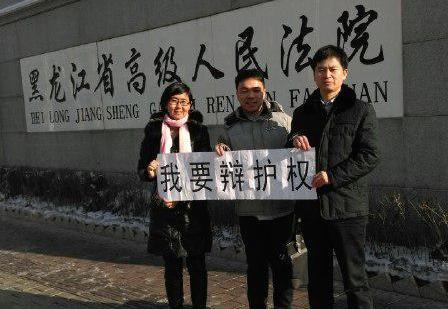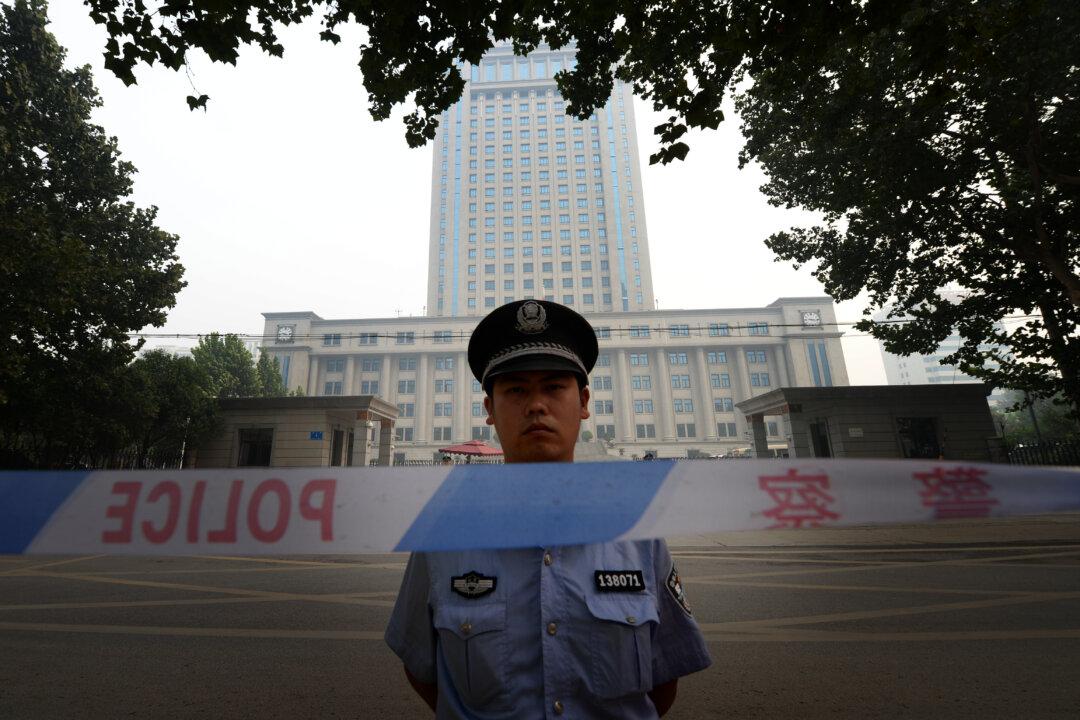The second trial of four practitioners of Falun Gong, a traditional Chinese spiritual practice, detained after a widely publicized incident of protest nine months ago, opened secretly on Jan. 8—but neither defense lawyers nor their family members were informed.
During the secret trial, lawyers filed complaints against what they said was illegal behavior by the court.
One of the lawyers, Wang Yu, said she found out about the trial through the Jiansanjiang Court’s website two days before the trial opened—and that’s how she notified the other attorneys (eight in total) and the family members.

The law, however, requires that all parties are notified directly by the authorities. And if Wang hadn’t happened to check the website on that date, she wouldn’t have found out until afterward.
“The court simply didn’t notify lawyers, nor the families. It ran a secret trial illegally,” Wang Yu said in an interview with the New York-based Chinese-language New Tang Dynasty Television. “We eight lawyers all published protests. We went to the provincial People’s Congress, the provincial supreme court, and the provincial Supreme People’s Procuratorate to file complaints.”
Wang and another lawyer, Zhang Weiyu, also held banners in protest of the secret trial.
The entire Jiansanjiang Incident, as it became known in legal circles in China, began in March of last year when four lawyers were detained and illegally tortured after traveling to the Jiansanjiang police station in remote northeast China. They were protesting the detention and abuse of three Falun Gong practitioners in custody there.
The lawyers suffered a total of 24 broken ribs among them, as a result of police brutality.
Along with the lawyers, seven other Falun Gong practitioners were detained—four of them are on trial in the current case. (The other three were released on medical grounds after being tortured severely while in detention.)
The incident attracted significant domestic and international attention last year, with a stream of well-known human rights lawyers traveling from around China to the police station and detention center in Jiansanjiang, a remote area in Heilongjiang Province, which abuts Siberia, seeking to defend both the rights of Falun Gong practitioners and also the rights of the lawyers who defend them.
Falun Gong is a spiritual practice based on meditative exercises and moral precepts. It gained enormous popularity in China, claiming between 70 and 100 million adherents in the late 1990s, before a sudden and sweeping political persecution was launched to eradicate it. Adherents of the discipline continue to practice it, and work to counter state propaganda vilifying their beliefs, as well as violent persecution.
Two family members of one of the four Falun Gong practitioners made it to the hearing. Liu Pumei, the ex-wife of one of the accused, said the trial was “just a formality,” and “simply didn’t allow them to talk.”
“When they defended for themselves, they were frequently interrupted by the court. The trial was totally meaningless,” Liu told the Epoch Times in a telephone interview. “After your defense, they just tell you that you’re guilty. At the end, the court said it would sentence them another day.”
Liu said the court had been packed with government observers. When the defendants explained that they were tortured in custody, the judge interrupted them, Liu said, declaring that it was “irrelevant to the case.”




